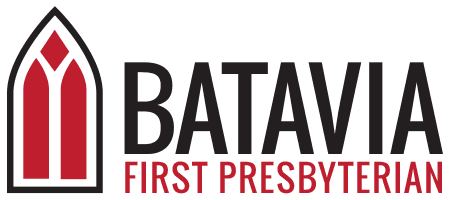Weekly Bible Devotional
“Grateful: Table Communion”
November 7, 2021
Scripture for Sunday: Luke 19:1-10
He entered Jericho and was passing through it. 2 A man was there named Zacchaeus; he was a chief tax collector and was rich. 3 He was trying to see who Jesus was, but on account of the crowd he could not, because he was short in stature. 4 So he ran ahead and climbed a sycamore tree to see him, because he was going to pass that way. 5 When Jesus came to the place, he looked up and said to him, “Zacchaeus, hurry and come down; for I must stay at your house today.” 6 So he hurried down and was happy to welcome him. 7 All who saw it began to grumble and said, “He has gone to be the guest of one who is a sinner.” 8 Zacchaeus stood there and said to the Lord, “Look, half of my possessions, Lord, I will give to the poor; and if I have defrauded anyone of anything, I will pay back four times as much.” 9 Then Jesus said to him, “Today salvation has come to this house, because he too is a son of Abraham. 10 For the Son of Man came to seek out and to save the lost.”
Notes on the Text:
In the story for this week, Jesus was on his way to Jerusalem. His journey started back in chapter 9, but there were several interruptions along the way and this week’s story is one of them. When Jesus reached Jericho, he met a man by the name of Zacchaeus who is identified as a chief tax collector (or chief publican). Zacchaeus inflicted a lot of pain on others and thus lived in a state of alienation from his community. Zacchaeus was a tax collector. Tax collectors were seen as collaborators with the Roman Empire and its occupation of the land and its people. They not only collected the tax which the Roman government required, but they also added to the bill to get themselves a piece of the pie. Zacchaeus’ description as a short man might be seen as a metaphor for his diminished spirit.
Biblical scholar Verity Jones notes that, “To handle the vast sums, publicans like Zacchaeus formed associations something like modern corporations, each headed by a lead bidder and a few officers backed by man investors. Having bid to deliver to Rome a specified amount from a province, they worked with local officials, who collected within their own districts. Taxes on agriculture and import customs were subject to unpredictable fluctuations, so getting the numbers right was a tricky business. Publicans were also moneylenders, speculators, and contractors supplying material for the army. Such enterprises provided opportunities for cooking the books, commodities speculation, side deals, graft, and extortion to defraud Rome, local officials, fellow investors, and average citizens.” This tells us why Zacchaeus did not have a good reputation in his community. He was someone who exploited others for his own material benefit. Zacchaeus had a powerful position in a very important town. There were two major highways in Israel at that time and one of them went right through Jericho. Jericho was the customs station, and thousands of Jews came through there and they had to pay taxes on every cow, calf, and camel that came through customs. So, with his position as chief publican who had the contract for tax collection, Zacchaeus took advantage of the Jews and exploited their religious celebrations to collect money. The story took place around Passover time which meant that tens of thousands of Jewish pilgrims were coming down from Galilee, going around Samaria because it was unsafe, and coming through the toll booth at Jericho and paying their taxes.
Jesus had every reason to resent Zacchaeus and to continue to let him be alienated from others. But in the kingdom of God, all our expectations are reversed, and all are restored to their original connection to life. Jesus does the unthinkable by deciding to go to the house of this man to have a meal with him. The table communion Jesus shared with Zacchaeus was a radical act of generosity of spirit which allowed this man to respond with that same sense of generosity of spirit.
Not only did Jesus go to Zacchaeus’ home, but he also told him that he was going to stay with him. The word “meno” in the New Testament Greek always shows how God dwells among us to transform our lives and our world. Jesus’ visit to the home of Zacchaeus was not going to be a casual one. It was about the presence of God dwelling in Zacchaeus’ home and heart. This dwelling presence radically changed Zacchaeus’ life. He repented from his old ways of greed and gave away half of his possessions.
For Reflection:
Gratitude always restores us to a larger sense of life. It moves us from feeling isolated to feeling connected to all of life. According to commentator Michael Card, “Zacchaeus is not misunderstood. He is not the victim of circumstance…He has chosen to work for the Romans, to bilk his own people. So successful is he at this job that the has risen in the ranks to become a chief tax collector. The people don’t despise him because they are close-minded and judgmental; they despise him because he is a slimy, good-for-nothing thief. And he knows it.” I love this description of Zacchaeus because it paints a powerful image of a man that seemed beyond the reach of God. He seemed so cut off from any goodness. But how does God restore him back to the flow of grace and gratitude? The grace of the table is so powerful that even someone like Zacchaeus is restored and redeemed not only to God but to his own community. No longer was Zacchaeus focusing on himself, but he saw himself as part of a greater story of love.
One of the ways God reaches out to us is through the grace of the table of Christ. This is one of the main ways Jesus restored the flow of blessings to those who were cut off from others. And the response was always overwhelming gratitude.
Even when we feel blocked and alienated from others or God, God reaches out to us. The invitation is to receive these gifts. Most of us have a hard time receiving help from others. I am the first to say, “I don’t need any gifts for Christmas” or “I can do this on my own.” I know that it is not always easy to receive care and love from others. Yet, I know that when we allow ourselves to be humble enough to receive without a sense of entitlement or shame, we are able to feel a deep love that restores us to our original sense of blessing and goodness. This is one of the many reasons I love celebrating communion as often as possible. Receiving the gift of Christ’s unconditional love at the table restores us to the cycle of grace and gratitude. It restores us to see ourselves as part of a larger whole in which all parts are connected and belong. We are then able to move from a false sense of self to a healed sense of our cosmic connections.
In her book Take This Bread: A Radical Conversion, Sara Miles shares about the power of the Table of Christ (Eucharist): “The entire contradictory package of Christianity was present in the Eucharist. A sign of unconditional acceptance and forgiveness, it was doled out and rationed to insiders; a sign of unity, it divided people; a sign of the most common and ordinary human reality, it was rarefied and theorized nearly to death. And yet that meal remained, through all the centuries, more powerful than any attempts to manage it. The feast showed us how to re-member what had been dis-membered by human attempts to separate and divide, judge and cast out, select or punish. At that Table, sharing food, we were brought into the ongoing work of making creation whole.”
Pay Attention to Gifts
By Diana Butler Bass
Quote from Grateful: “Gratitude is bound up with giving and receiving gifts. Gifts are the nature of the universe itself, those things we have received from God or the natural order or what have-you. Grace reminds us that every good thing is a gift–that somehow the sun rising and to be alive is an indiscriminate daily offering to us. All that we have was gifted to every one of us.”
Awareness: A gift is something we did not achieve, did not earn, and did not even expect. It is bestowed upon us. We feel grateful when we receive a gift, something that reminds us that a giver has noticed and cares about our needs. Although it is easy to pay attention to special occasion gifts–like birthday or holiday presents–it is harder to notice the daily gifts of our lives.
What daily gifts do you often take for granted? Are there gifts that comes from unexpected sources, or from even negative experiences?
Practice: Pay attention to gifts today:
- What felt like a gift today in your life?
- From where did that gift come?
Jot your responses in a small notebook or on your cell phone. In the evening, review and reflect on gifts and givers on this single day.
Prayer: Thank you for gifts of sunlight, a new day, food, water, and safety. For family and friends. Help me appreciate the simple blessings of life and not take any of these gifts for granted. May I learn to see gifts of life more widely–experiencing the gifts that come under surprising circumstances from unexpected givers.




